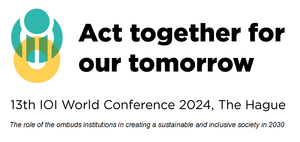The CCAC completes “Inquiry report on Chief Executive Order no. 57/2024 (involving selling prices of independent units for economic housing projects located at Lots B4, B9 and B10 of New Urban Zone Area A)”, which means the complaints about selling prices and subsidy ratios for the 2019 economic housing units. The CCAC believes that the Chief Executive Order involved in the complaints complies with the legal stipulations about selling prices provided for in the Economic Housing Law which was revised in 2015 (hereinafter referred to as the “former Economic Housing Law”). The determination of the minimum limit of monthly incomes earned by economic housing applicants, the time for publication of selling prices and the market prices used for consideration of subsidy ratios are at the discretion of the Public Administration. The CCAC points out that, according to the content of the complaints, it seems that the minimum limit of monthly income earned by applicants at the time of application should be necessarily in line with the pricing of the economic housing units. It should be clarified that such amount is just the prerequisite for vetting and approval of applications and is often used for calculation of affordable mortgage repayment by an applicant, which served as one of the parameters of purchasing power of the applicant. The CCAC suggests the relevant departments pay more attention to the work of disseminating preliminary information and broadening the general public's knowledge in order to allow them to better understand and gain knowledge of the relevant legal regime about economic housing.
The CCAC earlier received several complaints about the selling prices of the economic housing units and the subsidy ratios published in the Chief Executive Order no. 57/2024. Upon analysis, the CCAC considers that the content of the complaints is not related to illegalities or improprieties of administrative procedures or administrative acts. It just involves regulatory acts or administrative measures of the Public Administration. Therefore, the CCAC carried out an inquiry into the matters within its jurisdiction and expedited the handling of the said complaints because the issues aroused concern in the society and the legal issues involved were relatively uncomplicated.
Regarding the issues involving the pricing for economic housing projects located at the involved lots, after analysis, the CCAC considers that, in 2019, when the Housing Bureau (IH) published the relevant application notice, the minimum limit of monthly total income earned by an applicant with a two-member household was MOP17,680 according to the Chief Executive Order no. 169/2019. This stipulation was just one of the requirements for vetting and approval of the applications. In 2024, when the selling prices of economic housing projects located at the involved lots were announced, the minimum limit of monthly total income earned by an applicant with a two-member household was MOP19,270 according to the Chief Executive Order no. 151/2023. Such limit was used for calculation of affordable mortgage repayment by an applicant, which served as one of the parameters of purchasing power of the applicant. The CCAC points out that the Public Administration has the discretionary power to decide on the year from which the figures are used as the basis for calculation and there is no mandatory stipulation in the law. In the past, when the Public Administration announced all selling prices of economic housing units, it used to use the then minimum limit of monthly total income earned by economic housing applicants at the time when the selling prices were announced for calculation of affordable mortgage repayment by an applicant, which served as one of the parameters of purchasing power of the applicant. It has never used the minimum limit of income effective during the periods of application or even earlier as the basis for calculation.
To read the entire article, kindly click here.
Source: Commission against Corruption, Macao, China

